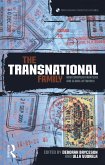An examination of the ideas that constitute the research paradigms and selected topics by which anthropologists explain and understand power, politics, political organizations, and political topics across ethnographic and historical space and time.. The field of political anthropology is complicated by a breadth and depth of interests that include every kind of ethnographically and historically represented political community, and nearly every kind of recorded political practice, behavior, and organization. To make sense of this array of information, political anthropologists examine political topics and issues in the context of research paradigms that include structural-functionalism, processualism, political economy, political evolution, and, arguably, postmodernism. In this book, Donald V. Kurtz examines how the ideas of political anthropologies concerned with political power, leadership, legitimation, succession, and state formations relate to research strategies that are directed by these paradigms. }Politics is all about power, and power--its composition, creation, and use--pervades this unique and clearly written assessment of the paradigms by which anthropologists explain and understand political phenomena. In Political Anthropology , Donald V. Kurtz examines how anthropologists think about politics, political organizations, and problems fundamental to political anthropology. He explores the ideas by which they address universal political concerns, the paradigms that direct political research by anthropologists, and political topics of special interest.The universal political concerns include ideas related to political power, leadership, the legitimation of authority, and rules that regulate succession to political statuses and offices. Kurtz relates these concerns to the paradigms that provide the research strategies anthropologusts use to examine political phenomena; he investigates structural functionalism, processualism, political economy, and political evolution. Postmodernism provides a fifth research strategy characterized by an eclectic approach to politics that suggests its paradigmatic status is still unformulated. The analysis concludes with a consideration of idea related to state formations. }
Dieser Download kann aus rechtlichen Gründen nur mit Rechnungsadresse in A, B, BG, CY, CZ, D, DK, EW, E, FIN, F, GR, HR, H, IRL, I, LT, L, LR, M, NL, PL, P, R, S, SLO, SK ausgeliefert werden.









